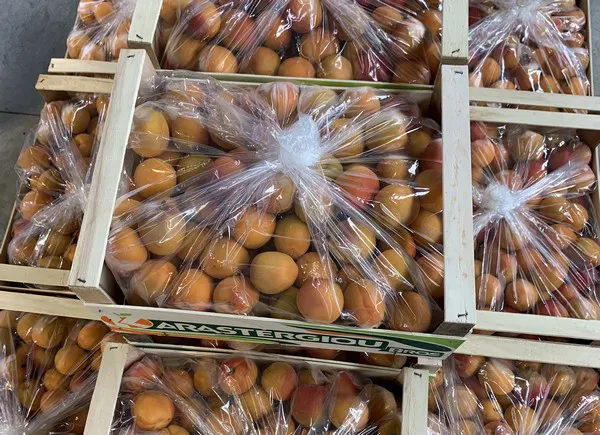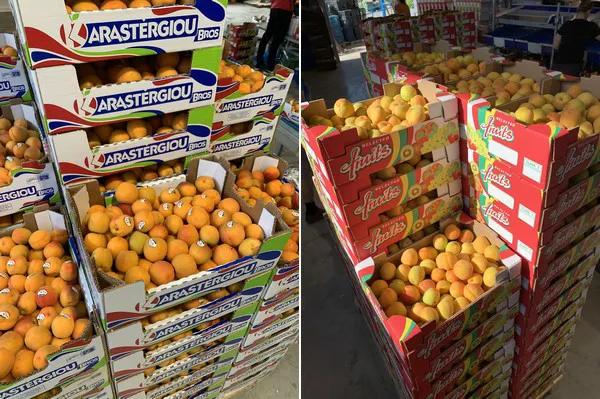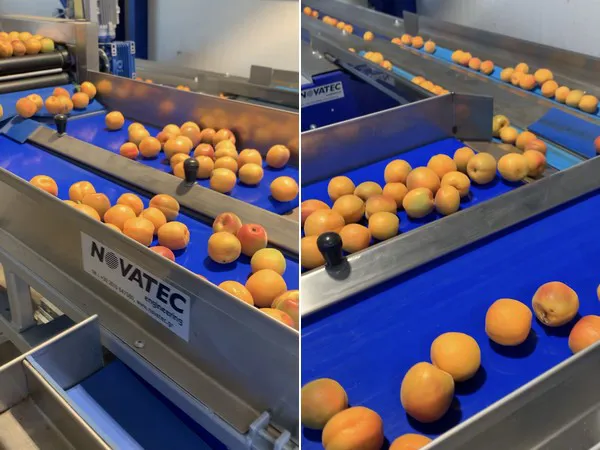The weather has caused some issues for the early apricot varieties in Greece, says Paris Karastergios, import-export coordinator for Greek produce exporter Kastargiou P. Bros S.A.: “The Greek apricot campaign started only two weeks ago, with some Mogador apricots from southern Greece at the beginning and then the season switched to Wonder Cot. Only last week, in our region, some Mogador started, but there were some quality problems. The weather is very unfavourable for apricots and all early stone fruits, because some parts of Greece have been hit with hailstorms in late April-early May. On top of that, it has rained every day for the last 15 days, causing cracks on the top of the fruits.”

These weather conditions will result in lower volumes this year, Karastergios predicts. “The volumes compared to last year’s campaign are about the same percentage-wise, however I think that we will have lower volumes of high quality apricots this season, because of the weather conditions during May. Hopefully, the later varieties will not be as affected as the early ones, but we still have to wait for the rainfalls to be over to estimate the damage.”
Although Kastargiou has mostly exported the apricots to European markets, in recent years the company has shipped more towards newer markets as well: “Our most important markets are European countries near Greece, such as Serbia, where we export a lot of Tirynth apricots, the Czech Republic, Poland and Bulgaria. We’ve been increasing our volumes every year in Egypt and countries of the Middle East, where there is even more potential to increase our shares, both with Tirynth, and newer varieties, such as Orange Ruby.”

Karastergios states they deal with different competition in different markets, but their season length is their big advantage. “Our competition depends on the destination. In the Middle East and Egypt, apricots from Syria are well appreciated, as they are less expensive than the European ones and more quickly delivered to their destination. In the meantime in Europe, it’s hard to compete with the other major supplying countries, Spain and Italy, because of their closer access to Northern Europe and their more modern Red-blushed varieties. Our apricots are in general very tasty and have a relatively long shelf life, but our major advantage over other countries is that because of the different micro climates, and different varieties, we are able to supply the markets with apricots from late May, to early August.”

Hopefully, the later varieties will be of better quality, which could then lead to big opportunities in the European markets: “We’re hoping for more favourable weather in the coming days in order to assess the damages to the apricots, at least the early varieties, while we are slowly switching to later and more exportable varieties, such as Magic Cot, Tirynth, Orange Ruby, Orange Red and Farbaly. I believe that because of the devastating floods and the continuing rainfalls in Italy, the Italian apricots are facing even worse quality issues, and as a result, there might be space for more Greek apricots in the markets of Northern Europe,” Karastergios concludes.
For more information:
Paris Karastergios
Karastergiou P. Bros S.A.
Tel: +30 24610 26940
Mob: +30 693 2469117
Email: paris.karastergios@karastergioubros.gr
